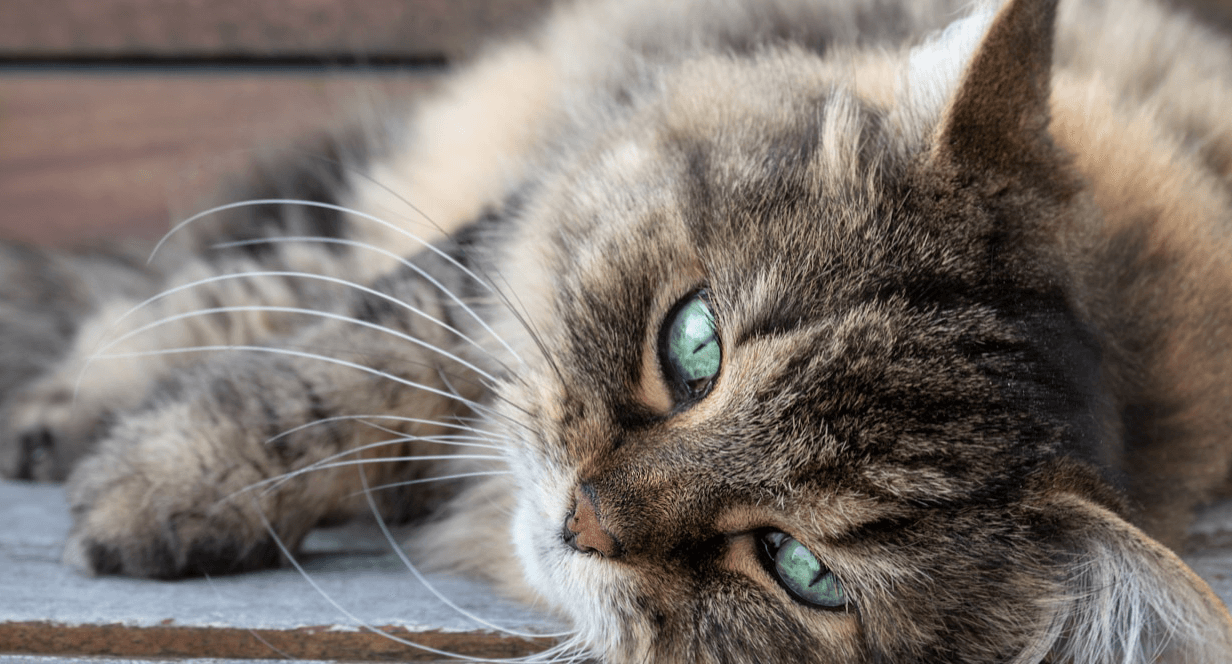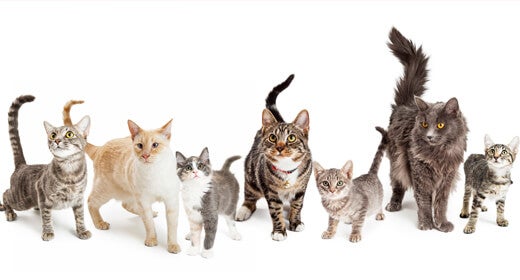

No matter how much you want them to stay adorable kittens, every cat eventually grows up to become an adorable senior. In fact, thanks to improvements in medical care and nutrition, cats are now living longer and healthier lives than ever before.
But as they age, your cat’s needs can change. By staying aware of the common signs of aging in cats and making a few adjustments to help them stay comfortable, you can turn your cat’s older years into their golden years.
Every feline is unique, but cats are usually considered senior once they reach 7 years old. Your older cat isn’t going to start leaving the blinker on or hiking their pants up to their armpits, but there are signs that may indicate your cat is getting on in years.
Older cats often eat less as their senses of smell and taste diminish. Sudden weight loss or gain could be a sign that something is off.
We all know cats love to sleep, but if yours is sleeping more than usual and doesn’t show the same interest in playing or other activities, it could indicate lower energy levels. Not being able to jump or climb to their favorite spots could be a sign of arthritis as well.
It’s a good idea to check your older cat’s teeth more often, looking for any changes in appearance. If they’re pawing at their mouth or aren’t eating as much, it could mean something is amiss. If you suspect there’s an issue, consult your vet.
With a few simple changes, you can keep your older cat happy and comfortable for many years to come — here’s how.
It can be harder for older cats to groom themselves as thoroughly as before. You can lend a helping hand by giving them regular brushings. Make sure to keep their nails trimmed, too. It’s a great way to spend some extra quality time together.
After years of leaping onto the kitchen counter when you weren’t looking, your senior kitty might have trouble getting to their favorite spots. You may want to place a ramp or folding steps near their favorite couch or bed so they don’t have to jump as much. Make sure they have easy access to their food and litter box, too. Adding a litter box on each floor of your house can help prevent accidents.
Older cats love their routines. The more you’re able to keep things consistent and predictable, the calmer and less frightened they’ll be.
One cat year is like four human years, so a lot can happen in that span, especially in older cats. More frequent vet exams can detect health issues before they become serious.
Cats crave warmth. Make sure your grandcat has access to a number of sunny spots or heating vents to keep them toasty. Leave comfortable, warm blankets around your home for lounging, and consider bumping up the thermostat a degree or two for them — even though their favorite furnace will always be your lap.


Your adult cat is a perfect specimen of mobility, speed, acuity, and grace. She is in her prime. She shines in her gleaming coat and her eyes are bright.
Jumping, twisting, and landing, her skeleton bears strain our own bodies could never endure. Her muscles are highly flexible. Her movements are lightning fast and her senses highly tuned.
Between ages 1 and 8, your cat will experience the equivalent of a human's journey from teenager to late middle age. As caretaker, you are responsible for good adult cat health and lifestyle in these years and beyond.
It can be difficult to keep such an adventurous creature indoors. But to do so is proven to extend a cat's life, because it limits exposure to predators, cars, fleas, and other cats that may have diseases such as feline leukemia or feline immunodeficiency virus (FIV). Keep your cat duly entertained indoors by providing toys, structures to climb on, spots near windows to watch the action outdoors, or–if she responds to them–TV and special videos.
One potential side effect of being a pampered, indoor cat is obesity. If your cat starts to gain weight, limit or change her diet and encourage more exercise. Make time for play with your cat each day.
An adult cat should visit the vet annually. Dental and gum disease, diabetes, hyperthyroidism, and other medical problems can present themselves in adulthood to middle age. Early detection is essential to successful treatment and extended life.
As your cat nears 8 years old, be sure to watch for signs of other age-related illnesses such as weight loss, decreased appetite, neglect of grooming, increased thirst and urination, and retreating from the household.
Both you and your cat will enjoy these peak years. They will be filled with acrobatic antics and lithe poses you can't help photographing. If you take the appropriate precautions, you can extend the health and fun for many years.